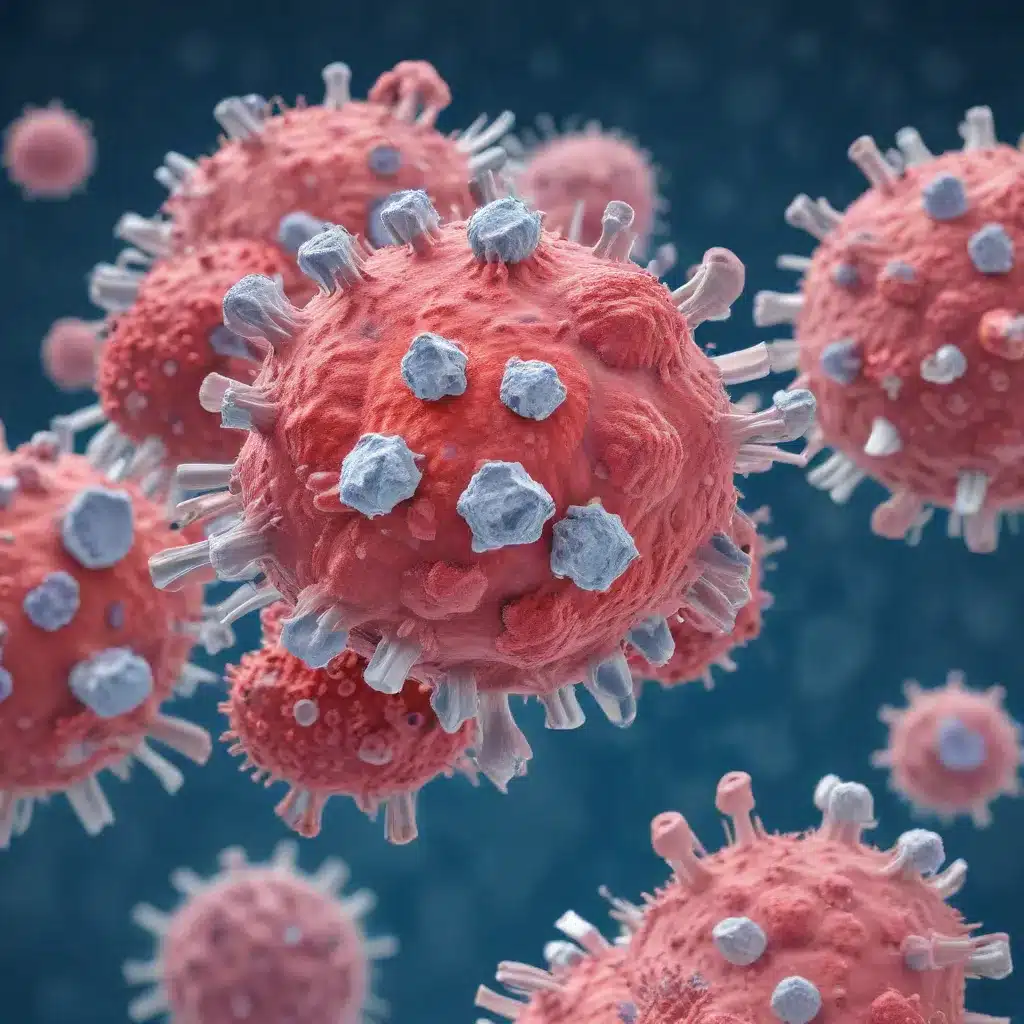
TG6050: An Oncolytic Virus Delivering Interleukin-12 and Anti-PD-1 for Cancer Immunotherapy
Oncolytic viruses (OVs) have emerged as a promising modality for cancer immunotherapy, harnessing their natural ability to selectively infect and replicate within tumor cells. TG6050, an advanced OV platform developed by Transgene, takes this concept a step further by encoding potent immune-stimulating payloads directly into the viral genome. By delivering both interleukin-12 (IL-12) and an anti-cytotoxic T-lymphocyte-associated antigen-4 (anti-CTLA-4) antibody, TG6050 aims to reshape the tumor microenvironment and elicit a robust, systemic anti-tumor immune response.
Tumor Targeting Capabilities
The foundation of TG6050’s efficacy lies in its specialized viral vector – a modified vaccinia virus (VACV) equipped with key genomic deletions. These deletions not only restrict viral replication to tumor cells, but also optimize the delivery and functionality of the encoded transgenes.
Viral Vector Selection
VACV serves as an ideal platform for TG6050 due to its large genomic capacity, which allows for the co-expression of multiple therapeutic payloads. Additionally, VACV has a well-established safety profile, having been used extensively in the clinic, and can be administered systemically via intravenous (IV) infusion.
Tumor-Specific Replication
TG6050 is engineered with deletions in the viral genes for thymidine kinase (TK), the large subunit of ribonucleotide reductase (RR), and the M2L gene. These modifications selectively impair viral replication in healthy, non-tumor cells, while preserving the virus’s ability to replicate within the metabolically active tumor environment.
Payload Delivery
The viral genome of TG6050 has been further modified to encode the transgenes for a single-chain human IL-12 fusion and a full-length, antibody-dependent cell-mediated cytotoxicity (ADCC)-competent anti-CTLA-4 antibody. These payloads are expressed under the control of dedicated viral promoters, ensuring localized and sustained production within infected tumor cells.
Interleukin-12 Therapy
IL-12 is a potent cytokine known for its ability to stimulate and activate key immune effector cells, such as natural killer (NK) cells and T cells, particularly CD4+ T helper 1 (Th1) cells. These activated cells then secrete interferon-gamma (IFN-γ), which exerts broad anti-tumor effects.
Immune Stimulation
The high intratumoral concentrations of IL-12 achieved with TG6050 have been shown to drive significant increases in IFN-γ levels, both within the tumor and systemically. This cytokine storm promotes the recruitment and activation of antigen-presenting cells, such as dendritic cells, and the priming of tumor-specific CD8+ cytotoxic T cells.
Antitumor Effects
The cascade of immune responses triggered by IL-12 can directly inhibit tumor cell growth, activate anti-tumor T and NK cells, skew macrophages towards a pro-inflammatory M1 phenotype, and further stimulate dendritic cells. Importantly, these potent anti-tumor properties of IL-12 are maintained when delivered by the TG6050 OV platform.
Synergistic Potential
While IL-12 alone can elicit robust anti-tumor immunity, its clinical use has been historically limited by dose-limiting toxicities associated with systemic exposure. By leveraging the tumor-specific delivery afforded by the TG6050 OV, the therapeutic window of IL-12 can be significantly expanded, paving the way for synergistic combinations with other immunotherapies.
Anti-PD-1 Immunotherapy
The second key payload encoded by TG6050 is an anti-CTLA-4 antibody. CTLA-4 is an immune checkpoint receptor that negatively regulates T cell activation, and its blockade can reinvigorate antigen-specific T cell responses against tumors.
Checkpoint Inhibition
The anti-CTLA-4 antibody produced by infected tumor cells within the TG6050 OV platform is designed to be ADCC-competent, meaning it can engage Fc receptors on immune effector cells to enhance tumor cell killing.
Enhancing T Cell Response
By simultaneously delivering IL-12 to stimulate T cell priming and activation, and anti-CTLA-4 to remove the brakes on existing tumor-specific T cells, TG6050 aims to create a synergistic effect that amplifies the cytotoxic T cell response against the tumor.
Combination Strategies
Preclinical studies have shown that the combination of TG6050 with an anti-PD-1 antibody further enhances antitumor efficacy compared to either modality alone. This strategic pairing targets complementary immune checkpoints to comprehensively reinvigorate the tumor-specific T cell response.
Preclinical Evaluation
The promising therapeutic potential of TG6050 has been extensively validated through rigorous in vitro and in vivo studies.
In Vitro Efficacy
In a panel of human tumor cell lines, TG6050 demonstrated potent oncolytic activity and robust replication, comparable to benchmark OV vectors. Importantly, the infected tumor cells were able to produce high, functional levels of both IL-12 and the anti-CTLA-4 antibody, with the latter displaying ADCC-mediated killing of target cells.
In Vivo Efficacy
Preclinical evaluation of TG6050 in syngeneic mouse tumor models, including both immunologically ‘hot’ and ‘cold’ tumors, revealed remarkable antitumor activity. This was driven by the combined effects of increased intratumoral IFN-γ, CD8+ T cell infiltration, and M1 macrophage polarization, as well as depletion of immunosuppressive regulatory T cells (Tregs). Importantly, the antitumor immunity induced by TG6050 was durable, with many long-term survivors demonstrating protection against tumor rechallenge.
Safety Assessments
To assess the safety profile of TG6050, the OV was administered intravenously to cynomolgus monkeys in a 28-day repeat-dose toxicology study. TG6050 was well-tolerated at both low and high dose levels, with only transient, manageable increases in circulating IL-12 and IFN-γ observed. These findings indicate that the tumor-restricted expression of the payload transgenes effectively limits systemic exposure, a critical prerequisite for clinical translation.
The robust preclinical data package for TG6050, showcasing its ability to reshape the tumor microenvironment and elicit potent, systemic anti-tumor immunity, has paved the way for its clinical evaluation. A phase I trial (NCT05788926) is currently underway, assessing the safety and efficacy of TG6050 administered intravenously, both as a monotherapy and in combination with an anti-PD-1 antibody, in patients with metastatic non-small cell lung cancer.
As an experienced home improvement consultant for Reluctant Renovator, I’m excited to see how the principles of TG6050’s targeted delivery and combination immunotherapeutic approach can inspire innovative strategies for transforming living spaces. By leveraging specialized technologies to enhance the body’s own defenses, we may one day see similar breakthroughs in the world of home renovation – where budget-friendly, eco-friendly, and family-centric solutions emerge through the careful integration of diverse design elements.



